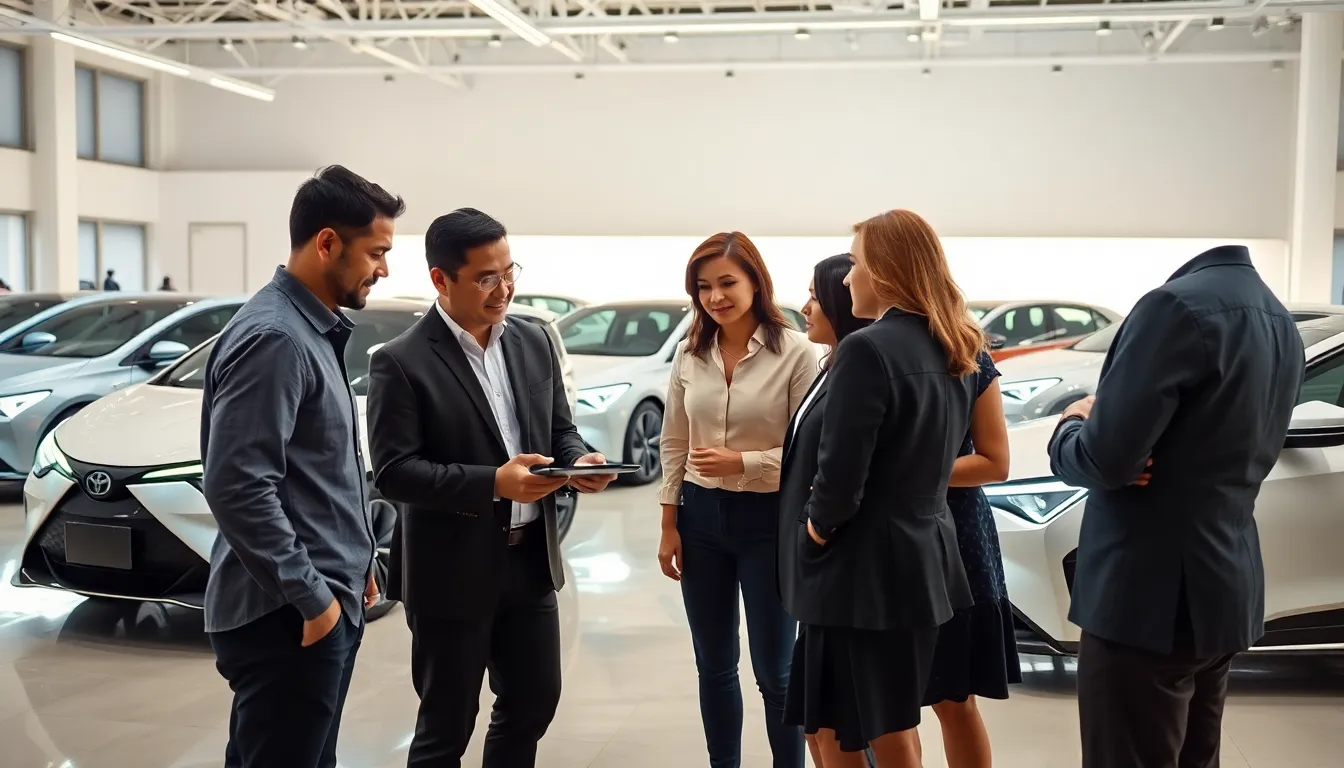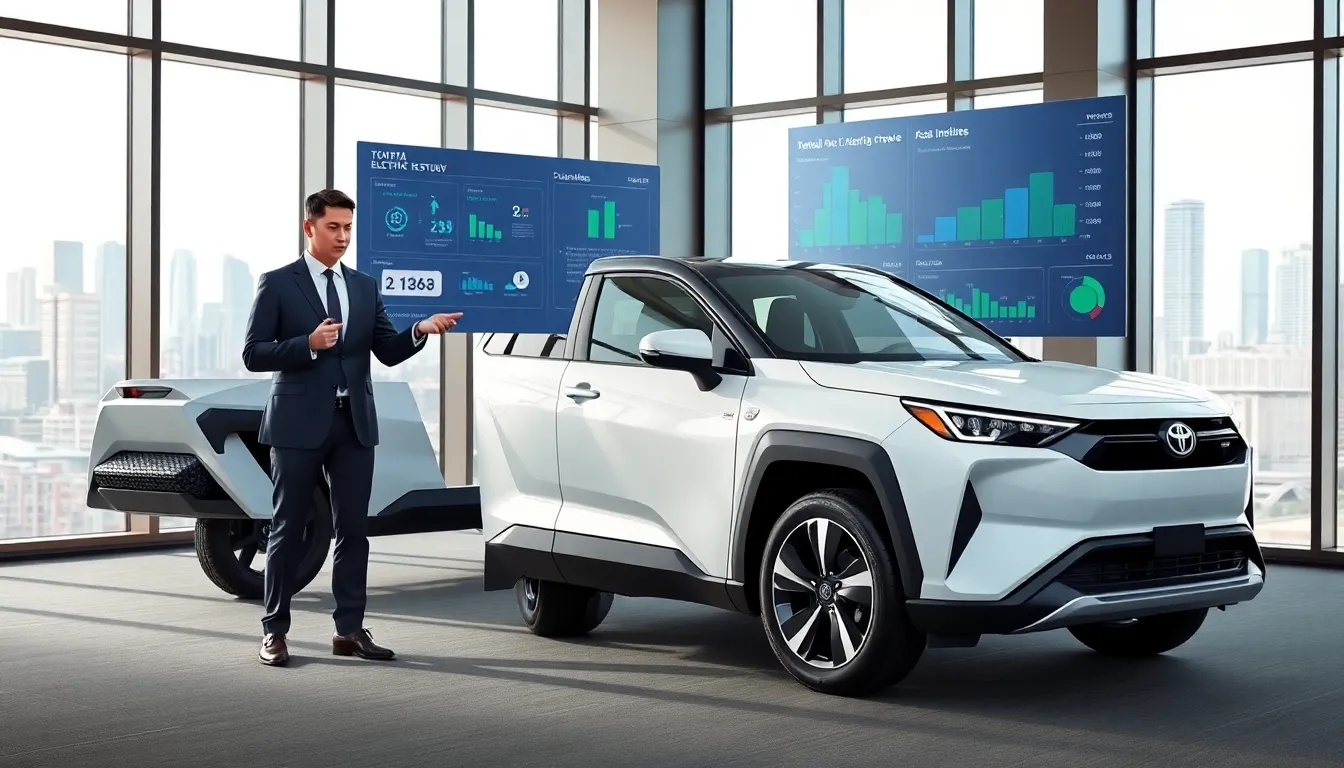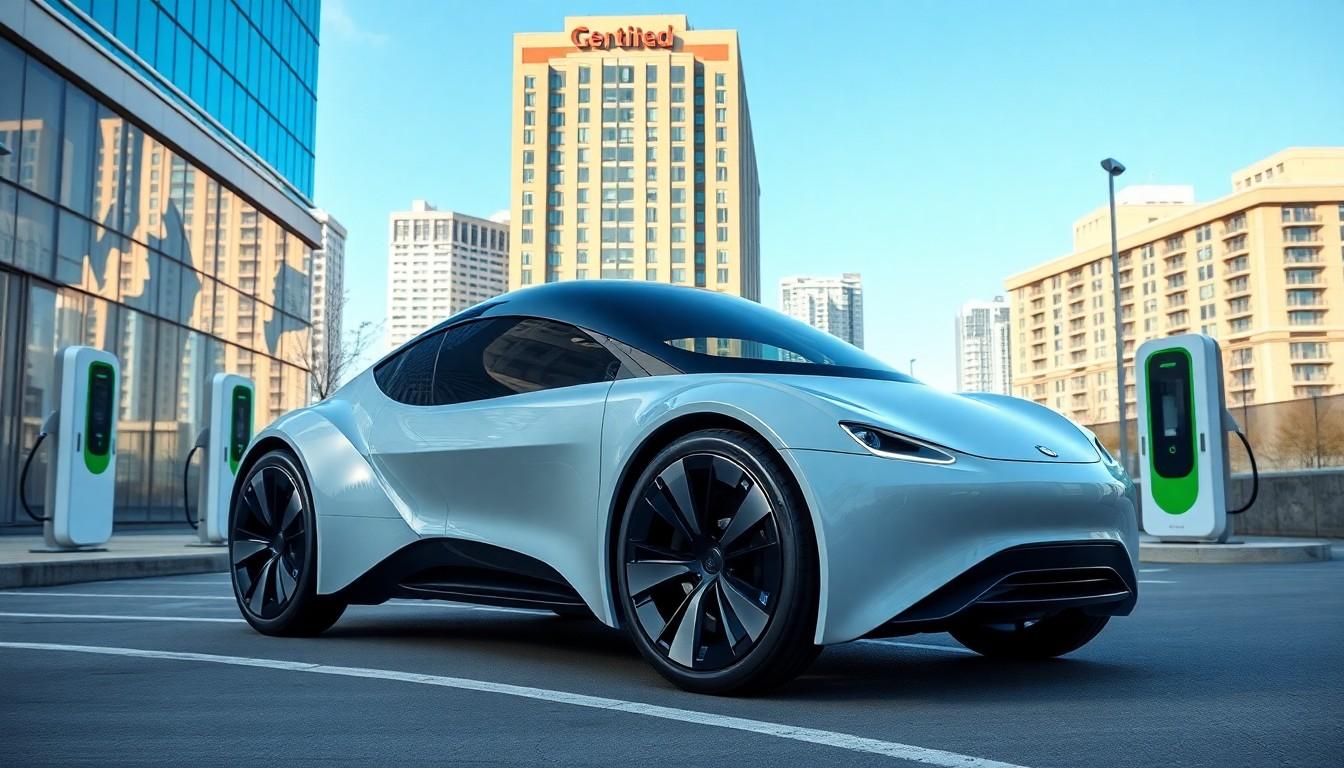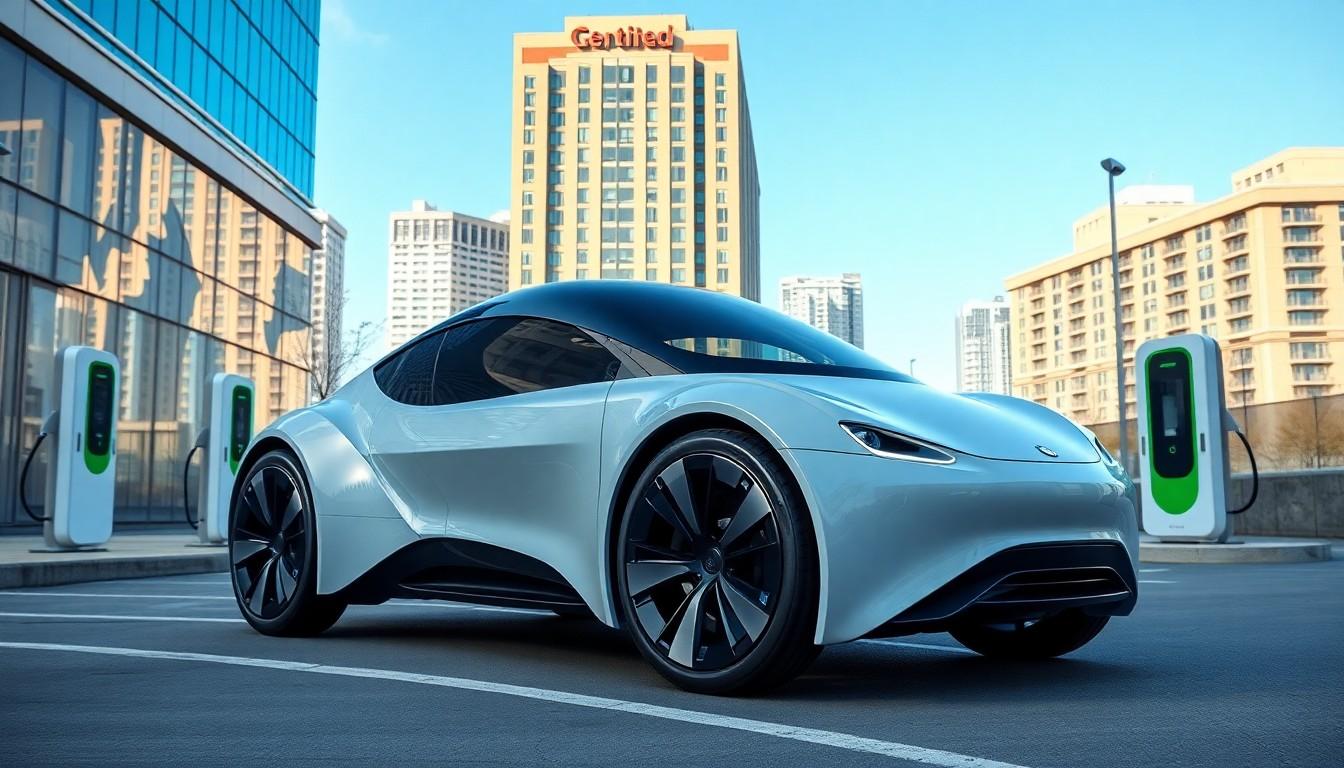Picture this: a world where your car not only gets you from point A to B but also helps save the planet. Sounds far-fetched? Not anymore. Toyota, a giant in the automotive industry, is revving up its efforts to transform the way we think about mobility. With a commitment to electric vehicles (EVs), they’re not just keeping pace, they’re setting the pace. In this text, we’ll jump into Toyota’s electric vehicle strategy, explore key models, highlight technological innovations, and touch on the environmental implications, all while keeping it engaging and insightful. So, buckle up.
Table of Contents
ToggleOverview of Toyota’s Electric Vehicle Strategy

Toyota has historically been a pioneer in the automotive landscape, especially with the introduction of the Prius. This hybrid was just the beginning, paving the way for their current electric vehicle strategy. Planning to embrace a broader electric future, Toyota aims to up its EV game substantially by investing approximately $37 billion into electrification over the next decade.
The company has set an ambitious goal: to have at least 30 battery electric vehicles (BEVs) on the market by 2030. That’s right. They plan to go beyond hybrids, offering a full range of electric options for consumers. With a focus on both innovation and affordability, Toyota believes that EV adoption hinges on making these vehicles accessible to everyone. By positioning themselves as a leader in the sector, they’re not only showcasing their commitment to sustainability but also trying to meet the evolving demands of modern drivers.
Key Models in Toyota’s Electric Vehicle Lineup
When discussing electric vehicles, Toyota’s lineup has rapidly expanded. Among the standout models is the Toyota bZ4X, a stylish electric SUV that embodies the essence of EV driving with its futuristic design and impressive range. With a starting price that appeals to a broad audience and features tailored for comfort, this vehicle has certainly created buzz in the automotive community.
Other notable models include the Toyota Mirai, a hydrogen fuel-cell vehicle that, though not a battery electric vehicle, represents Toyota’s commitment to innovative technologies in clean energy. This model pushes the envelope by utilizing hydrogen as a power source, demonstrating Toyota’s flexible approach to environmental solutions.
As Toyota continues to flesh out its electric portfolio, consumers can expect a variety of options that cater to different tastes and needs, from compact city cars to larger family-friendly vehicles.
Technological Innovations in Toyota Electric Vehicles
Innovation lies at the heart of Toyota’s philosophy. With advancements in battery technology, Toyota seeks to enhance its electric vehicles’ performance and efficiency. The solid-state battery technology, which offers increased energy density and quicker charging times, is currently under development and could change the game for the entire industry. Imagine fully charging your EV in just 10 minutes, Toyota is working diligently toward making that a reality.
Further, they are exploring Vehicle-to-Home (V2H) capabilities. This innovative technology allows EV owners to use their vehicle’s stored energy to power their homes during outages or peak usage times. Such features not only enhance convenience but also position electric vehicles as practical energy solutions, a win-win situation.
Also, Toyota is investing in autonomous driving technologies to enhance vehicle safety and user experience. With features like adaptive cruise control and lane-keeping assist, the future looks bright for Toyota’s electric vehicle offerings.
Sustainability and Environmental Impact
As environmental consciousness rises, Toyota’s commitment to sustainability becomes all the more important. The production of electric vehicles has its challenges, including battery disposal and resource extraction. But, Toyota is tackling these issues head-on by focusing on recycling initiatives and investing in sustainable materials.
Their “Circular Economy” model emphasizes the reuse and recycling of materials used in batteries, significantly reducing waste. For instance, the company plans to recover and repurpose lithium and other crucial materials from old batteries, so reducing the need for raw extraction. While challenges remain, Toyota’s proactive measures in this sphere reflect a sincere commitment to minimizing negative environmental impacts.
Challenges and Future Outlook for Toyota’s Electric Vehicles
Every great journey faces obstacles, and Toyota’s pursuit of electric vehicle dominance is no exception. The global chip shortage has impacted production timelines, causing delays in launching models like bZ4X. Also, increasing competition in the EV market adds another layer of complexity, with new players emerging daily, challenging established brands like Toyota.
Even though these hurdles, the company’s long-term outlook remains optimistic. Toyota is striving to maintain its innovative spirit while pushing through challenges. The ongoing advancements in battery technology and increased commitment to sustainability provide a solid foundation for the future. As they scale up production and expand their offerings, it’s clear that Toyota aims to have a seat at the forefront of the electric vehicle revolution.



